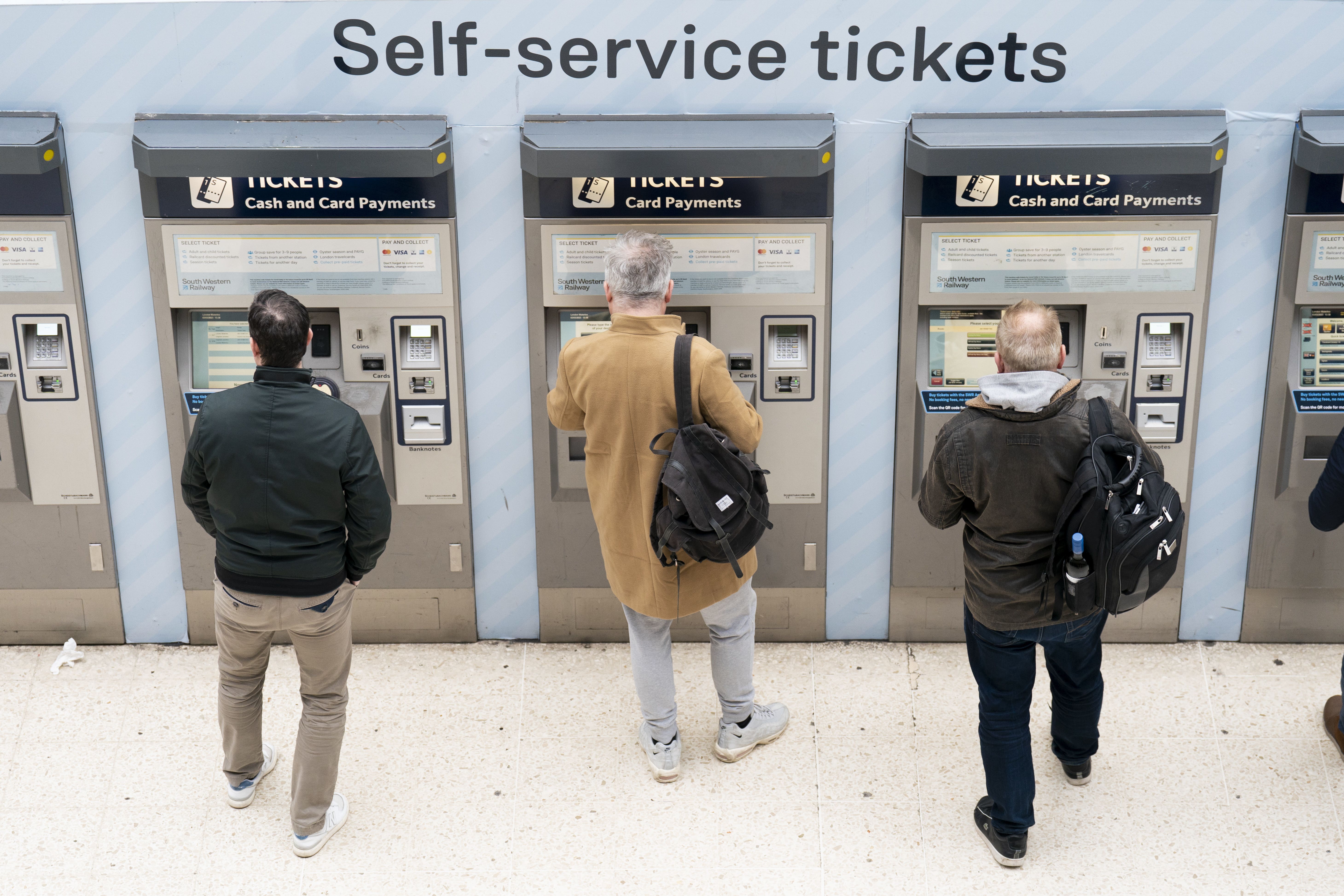Working from home blamed for record low train season tickets
Use by rail travellers has fallen 15 per cent during the previous 12 months

Your support helps us to tell the story
From reproductive rights to climate change to Big Tech, The Independent is on the ground when the story is developing. Whether it's investigating the financials of Elon Musk's pro-Trump PAC or producing our latest documentary, 'The A Word', which shines a light on the American women fighting for reproductive rights, we know how important it is to parse out the facts from the messaging.
At such a critical moment in US history, we need reporters on the ground. Your donation allows us to keep sending journalists to speak to both sides of the story.
The Independent is trusted by Americans across the entire political spectrum. And unlike many other quality news outlets, we choose not to lock Americans out of our reporting and analysis with paywalls. We believe quality journalism should be available to everyone, paid for by those who can afford it.
Your support makes all the difference.The percentage of train journeys made using season tickets has fallen to a record low, according to new figures.
Office of Rail and Road (ORR) data shows the tickets accounted for just 13 per cent of the 1.6 billion journeys taken on Britain’s railways in the year to the end of March.
That is down from 15 per cent during the previous 12 months, and is the lowest percentage in records dating back to 1987.
Around a third of train journeys before coronavirus restrictions began in March 2020 were made using season tickets.
The reduction since then has been driven by the increase in working from home.
Passengers who only travel to a place of work by train for part of the week often buy daily tickets as this is more cost-effective than weekly, monthly or annual season tickets.
Flexi season tickets aimed at commuters who travel to work two or three days a week were launched in June 2021, but their take-up has been minimal and they have been criticised for often offering little or no saving compared with daily tickets.
The rail industry was historically reliant on many commuters – particularly in south-east England – purchasing expensive annual season tickets for a large chunk of its total revenue.
In the year to the end of March, revenue from passengers was £10.3 billion.
That is just 82 per cent of the £12.7 billion generated in 2019/20, despite the total number of journeys being made recovering to 93 per cent.
The UK’s rails have been seriously disrupted due to a series of industrial action stretching back over the last two years.
During a round of strikes by train drivers begins across 14 rail firms in April, their union boss warned of more stoppages to come in the long and bitter dispute over pay and working arrangements.
Join our commenting forum
Join thought-provoking conversations, follow other Independent readers and see their replies
0Comments